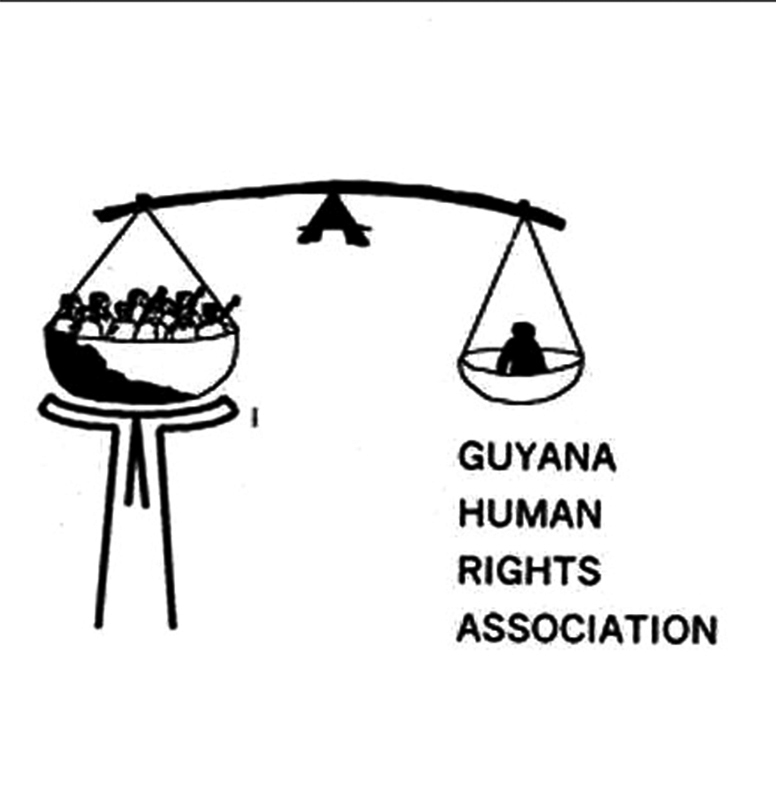Attorney General (AG), Anil Nandlall has fired the latest salvo in the public exchange with the Co-President of the Guyana Human Rights Association (GHRA), Mike McCormack, where he sought to highlight that the allegation that the GHRA was not in “Good Standing” was indeed factual while asserting the government’s right to respond to criticism.
In responding to McCormack’s letter, Nandlall chose to address the questions and concerns put to him.
He opened by focussing on the following paragraph, “The following is a preliminary response to the release by the Department of Public Information (DPJ) alleging that the Guyana Human Rights Association (GHRA) has been in breach of the law under which it is registered for the past forty years, creating a debt of some G$38,649,600 owed to the Guyana Government. The GHRA roundly rejects this allegation.”
To this, the Attorney-General noted that the information concerning the sum of $38,649,600 owed by GHRA to the State, is information to which the public is entitled to obtain from the official repository of that information, the Deeds and Commercial Registry Authority. He added that it was common knowledge members of the public, including the press, “routinely and regularly” request such information and proceeded to provide as an example, “the Stabroek News claimed it had obtained similar records of a company in which a minister and/or his relatives hold/held personal interests.”
As such he contended that “In accessing this information and making same public the Government, therefore, exercised no exceptional power.”
“I observed that GHRA `roundly rejects’ this allegation. Having regard to the state of the records at the official repository which clearly establish the breach alleged and the sums outstanding, such a bald rejection is unacceptable. GHRA is now obliged to establish for the public that it is compliant with the provisions of the Companies Act to properly traverse the contentions advanced. Nothing short will suffice”, he asserted.
He then dealt with this question: “What steps were taken by the Attorney-General’s Chamber in 1991 or more recently to ensure that all of the companies and organizations on the original Companies Register were adequately informed of the changes they were required to make to remain compliant? This is particularly relevant given that NGOs such as the GHRA were forced to register under the original Companies Act due to the absence of legal recognition of the concept of ‘non-profit’. Registration of the GHRA was undertaken by the late Miles Fitzpatrick QC and Ashton Chase QC.”
In response, the AG sought to explain that there exists a process by which laws are enacted. He informed that Bills are published in the Official Gazette and when they receive the President’s assent, they are again gazetted. These publications in the Official Gazette, he noted, constitute notice to the world and by this method, all are afflicted with actual or constructive notice thereof. “Ignorance of the law has never been a defence.”
The minister then turned his attention to another query. “The first audited accounts of the GHRA were for the year 1980 and the last for 2020, along with all forty years in between. What steps has the AG’s Chambers taken to address the legion of organizations of every description functioning without audits of any description, including official bodies?”
Here the AG strove to explain that it is the duty of the Registrar of Companies and by extension the Deeds and Commercial Registry Authority to administer and enforce the provisions of the Companies Act, and every other piece of legislation which falls under their purview. As such, he underscored that what McCormack asked for is not the function of the AG’s Chambers. The Attorney General and Minister of Legal Affairs, he reminded, is simply the agency with ministerial responsibility over these organs.
Recourses
“As the subject minister I am aware that there is a process outlined in the legislation to address non-compliance and there are recourses that are available when such non-compliances are found. I know that the Registrar of Companies routinely resorts to these mechanisms.
And concerning this question, “Since the alleged breach was never raised during the 23 years the PPP were in office during 1992-2015 what factors prompted the current search that produced one single non-compliant organization?” the AG stressed that the GHRA was never “singled out.”
“Permit me to assure you that the GHRA was not singled out for any special treatment. In fact, no treatment has been meted out to this organisation to date. Now that the non-compliance is known, it is a matter completely within the remit of the Registrar to act in accordance with the law.”
The Attorney General then turned his attention to the following remark contained in McCormack’s missive. “All of the allegations made about the GHRA: it’s Executive Board, finances, its political impartiality, and the legitimacy of its elections, are false and baseless. The continuous hostility and vindictiveness of the current Government towards any criticism emanating from civil society is sufficient for the GHRA and others to ensure we have all our ducks in a row as far as routine legal and financial matters are concerned.”
In response Nandlall charged that the government’s purported “hostility and vindictiveness” was merely the government exercising its right to criticise and “interrogate” alleged credentials and legal compliance issues.
“Surely, as the head of an organisation purporting to represent human rights, it cannot be your view that your organisation is entitled to make critical remarks as well as boast of credentials inclusive of legal compliance issues and that the victim of this criticism does not enjoy the right not only to respond to the criticisms but to interrogate your alleged credentials and legal compliance issues”, Nandlall stated.
The AG then sought to explain his actions as freedom of expression, ”On behalf of the Government of Guyana, the subject of the criticism, that is all that I did, which I resolutely maintain is an integral part of freedom of expression in a modern democratic society. Freedom of expression is not, has never been and will never be a one-way street. It contemplates the free exchange of information, thoughts and ideas from both the critic and the subject of the criticism.”
He however noted that based on some commentaries published in certain quarters, it would appear there are those who hold the view that the Government of Guyana has no right of response or rejoinder when it is criticised, and if and when it chooses to exercise these facilities, it is then labelled as “vindictive and intolerant of criticisms.” He also referred to what he viewed as the administration’s “superior” democratic credentials.
“I wish to make it abundantly clear that since independence no Government of Guyana has a superior track record of democratic credentials than successive PPP/PPPC Governments. Democratic governance, respect for the rule of law, the Constitution and the human rights of the citizenry continue to be the cornerstone of our Government.” He added, “Our Government welcomes and respects constructive criticisms but with equal force, we cherish our right of response and rejoinder to those criticisms. We will neither be timid nor will we abdicate our entitlement to exercise these facilities in the public interest, when necessary. While we encourage civil society organisations to be vigilant and oversight our Government, we resolutely maintain that those organisations must conduct themselves with a level of rectitude befitting those who wish to offer public criticisms in modern democracies. That they must be compliant with the laws of the land is central to their legitimacy if not their very existence.”
Nandlall signalled the government’s intention to hold the GHRA to the aforementioned minimal standards without apology, while asserting that such a position applies to every other civic organisation operating within the democratic space of Guyana.
The Attorney General listed a number of questions which he challenged the GHRA Co-President to respond to. He asked 1) could you make public GHRA’s forty (40) years of audited financial statements? 2) who are the current executive members of the GHRA and what number of persons constitute its current membership? 3) by what mechanism is the leadership of this organisation elected or appointed and at what intervals is this mechanism invoked? 4) from where does this organisation receive its funding? 5) what are the criteria used by this organisation in determining what issues to offer public commentary on? 6) when did the GHRA hold its last Annual General Meeting as a corporate body, as is required by law? and 7) whose interests or which segment of the Guyanese populations’ interest does this organisation purport to represent?










